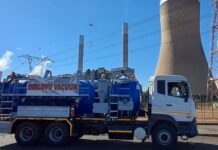By Chris Hattingh
The South African government has often talked a big game about “South Africa open for business”, with President Cyril Ramaphosa and his cabinet setting a 3% growth target for 2025. President Cyril Ramaphosa and his cabinet have set a target of 3% growth in 2025.
To reach anywhere near that (after all, between 2012 and 2023 South African GPD averaged only 0.8% per year) the country needs vibrant and active manufacturing and construction sectors.
South Africa open for business? Regulatory roadblocks
Local and foreign businesses need to employ more people and invest in real hard assets and infrastructure in the country. However, considering some of the recent legislation passed by the government, and the slow progress in opening to competition the state-dominated spaces of electricity and port and rail infrastructure, the country is not yet quite as friendly to business as the president and others like to tell themselves.
VAT reversal uncertainty Is South Africa open for business?
On 27 April the Western Cape high court issued an order suspending the VAT increase provided for in the budget presented on 12 March. It also set aside Parliament’s passing of the 2025 fiscal framework, writing: “The resolutions of the National Assembly and the National Council of Provinces, adopted on 2 April 2025, to accept the report of the Standing Committee on Finance and the Select Committee on Finance, on the 2025 Fiscal Framework, are set aside.” The court ordered the minister of finance, the speaker of the National Assembly and the chairperson of the National Council of Provinces to pay the legal costs of the DA and the EFF. The court order means that the VAT rate will not increase on 1 May.
The unseemly to-and-fro over the budget and the question of whether the VAT increase was happening or not is highly unsettling and creates uncertainty in the minds of investors. The poor communication and coordination within the GNU that caused it must be addressed decisively if it is not to create a further drag on South Africa’s investibility.
South Africa open for business? Growth forecast pitfalls
As mentioned above President Ramaphosa and corporate leaders are aiming for 3% GDP growth this year. For its part the South African Reserve Bank forecasts growth of 1.7%. However, given the domestic constraints on growth, the International Monetary Fund’s (IMF) SA growth forecast of 1% will likely prove the closest to reality.
A major impediment to investment, job creation, and growth, are South Africa’s stringent and onerous labour and employment laws.
During the week of 14 April, the labour minister, Nomakhosazana Meth, promulgated two sets of employment equity regulations. One set provides administrative rules. The other specifies numerical targets.
All races and genders are exposed to the risk of being excluded from jobs, as is made clear by the regulation which states that all employers with more than 50 employees “must avoid perpetuating the over-representation of any group if their representation exceeds the applicable [Economically Active Population] in a particular occupational level.”
That means if a large company has a C-suite in which 60% are black women, then it must aim to reduce the “over-representation” of black women by refusing to hire black women in that management category. The same holds for all race-gender pairs.
Legislation such as this serves as yet another ingredient of uncertainty (on the best case) for growing employers and investors, or as an outright barrier (on the worst case).
Should Mr Ramaphosa and his cabinet colleagues be truly serious about SA achieving higher growth rates, private sector participation in the country’s ports and rail needs to be accelerated, Localisation Master Plans must be done away with or given hard sunset clauses, public procurement legislation must be reformed where contracts are awarded only on a value-for-money basis, and wherever possible property rights must be strengthened and respected (in action and in rhetoric).
In the current global environment of heightened trade and investment uncertainty, South Africa can ill afford to send the wrong signals regarding its doing business environment.















